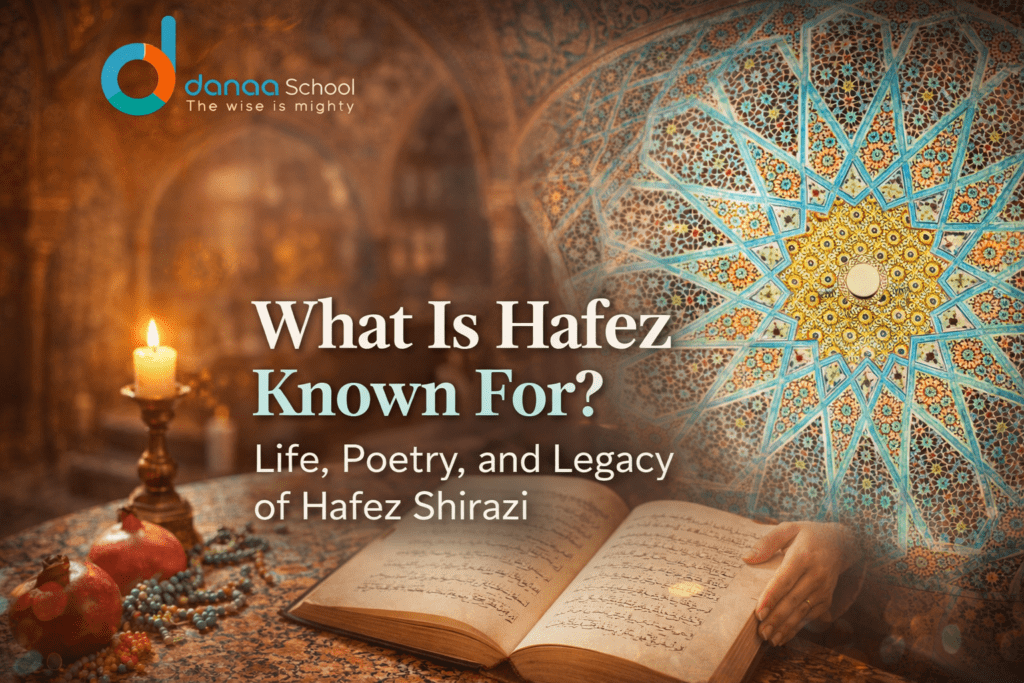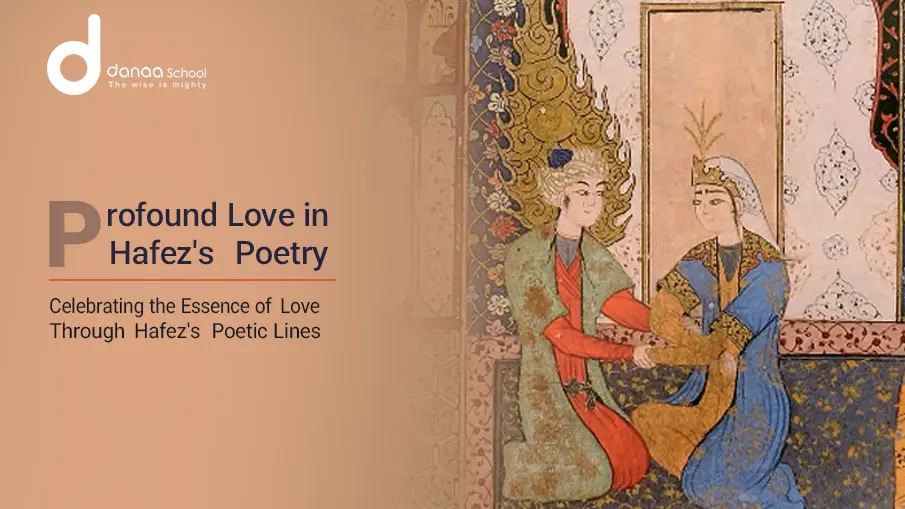What Is Hafez Known For? Life, Poetry, and Legacy of Hafez Shirazi
Hafez, born Khwāja Shams-ud-Dīn Muḥammad Ḥāfeẓ-e Shīrāzī around 1315 in Shiraz, Iran, is a name synonymous with Persian poetry. His title, “Hafez,” signifies his memorization of the Quran—a common scholarly practice that reflects his deep engagement with spiritual and intellectual pursuits.
His poetry, mainly composed of ghazals (lyrical poems), blends love, mysticism, and subtle critiques of society. But what exactly is Hafez known for? Let’s explore his life, themes, and enduring influence.
The Life and Times of Hafez
Hafez lived during a period marked by significant upheaval, including the Mongol invasions and the spread of the Black Death. Despite the chaos, Shiraz remained a vibrant cultural hub.
This environment allowed Hafez to develop his poetic voice—one that questioned hypocrisy, critiqued rigid authority, and explored both spiritual and romantic love. Although little is known about his personal life, his poetry offers a vivid window into the complexities of his era.
Themes in Hafez’s Poetry
Hafez’s ghazals are celebrated for their rich, multilayered themes, including:
Love
Hafez’s exploration of love transcends the physical and enters the mystical. His verses often blur the boundary between human romance and divine affection, presenting the beloved as a symbol of spiritual truth.
Spirituality
As a Sufi-influenced poet, Hafez challenged rigid interpretations of religion. His poetry promotes an intimate, ecstatic relationship with the divine—rooted in experience rather than dogma.
Nature and Wine
Nature imagery and references to wine appear frequently in Hafez’s work. Wine, far from literal indulgence, symbolizes divine ecstasy, freedom, and spiritual awakening.
Hafez’s Influence on Persian Literature
Hafez’s contribution to Persian literature is monumental. His Divan, a collection of ghazals, stands as a cornerstone of Persian literary tradition.
Through simple yet powerful language, Hafez conveyed profound philosophical and spiritual truths. His influence extends beyond poetry into Persian music, visual art, and philosophical thought.
Why Hafez’s Poetry Resonates Today
Hafez remains relevant because he speaks to universal human experiences—love, loss, doubt, faith, and the search for meaning. His critique of hypocrisy and advocacy for sincerity resonate strongly in the modern world.
Readers across cultures continue to find personal reflection and comfort in his verses, making his poetry truly timeless.
Hafez in Modern Culture
Hafez’s legacy continues to shape cultural life in Iran and beyond:
- Hafez Day: Celebrated annually in Iran to honor his literary legacy.
- Tomb of Hafez: Located in Shiraz, it is a pilgrimage site for poetry lovers worldwide.
- Translations: His works have been translated into many languages.
- Cultural Presence: His poetry appears in music, art, education, and everyday conversation.
FAQs
Why is Hafez called the "Tongue of the Hidden"?
Hafez is often referred to as the “Tongue of the Hidden” because his poetry conveys profound spiritual insights and mystical truths, often reflecting deeper, hidden aspects of existence and divine experiences.
How has Hafez influenced Western literature?
Hafez’s influence on Western literature can be seen in the works of writers like Goethe and Emerson, who admired his mystical depth and lyrical style. His universal themes of love and spirituality resonate across cultural boundaries.
Can Hafez's poetry be read for guidance?
Yes, many people use Hafez’s divan for guidance. It’s a tradition in Persian culture to open his book at random, interpreting the verses as advice or answers to personal questions, much like an oracle.
What is the significance of wine in Hafez’s poetry?
Wine in Hafez’s poetry symbolizes spiritual intoxication and the soul’s liberation. It often represents the joy and freedom found in mystical experiences and divine love.
Conclusion
At Danaa School, we believe in nurturing a deep appreciation for cultural heritage through the exploration of literary giants like Hafez. Our dynamic curriculum encourages students to immerse themselves in the rich traditions of literature, fostering a lifelong love for learning and cultural understanding. Join us at Danaa School.










